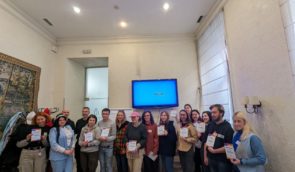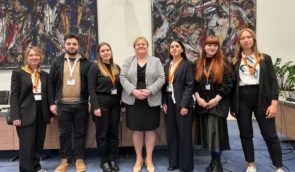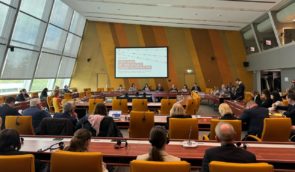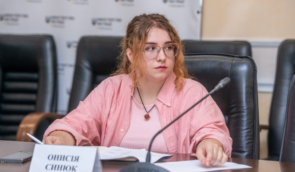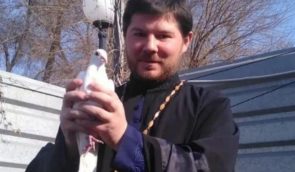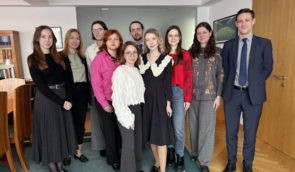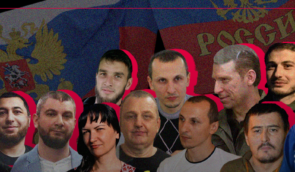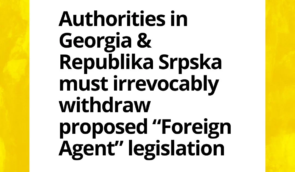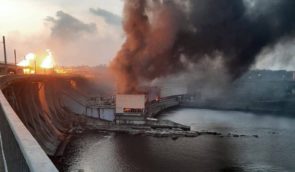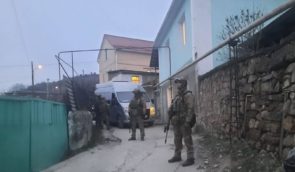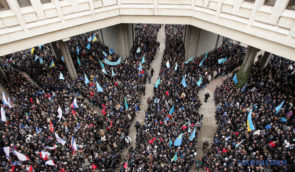We demand to stop the persecution of anti-corruption activists and investigative journalists!
We, representatives of the Ukrainian civil society of Ukraine, note a dangerous trend in the prosecution of anti-corruption activists and investigative journalists by law enforcement agencies in Ukraine, in particular, in the context of the activities of the Armed Forces of Ukraine and the mobilisation campaign.
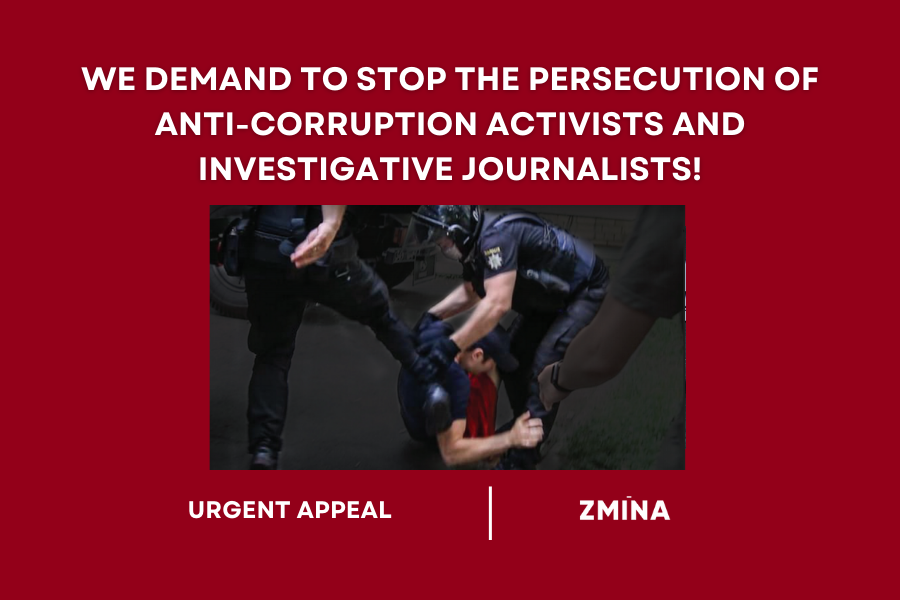
Thus, on April 10, 2024, employees of the Security Service of Ukraine together with the State Bureau of Investigation conducted a search of the chairman of the board in Kharkiv Anti-Corruption Center and an active serviceman of the National Guard, Dmytro Bulakh. The search took place under the pretext of the fact that Bulakh is a figure in the case of alleged abuse during the enlistment of military personnel (according to part 5 of Article 426-1 of the Criminal Code of Ukraine “Excess of authority or official powers by a military official, committed in conditions of martial law or in a combat situation”). The sanction of this article provides imprisonment for a term of eight to twelve years. The law enforcement officers do not say what the procedural status of Dmytro Bulakh is, but they note that they did not serve the suspicion on Bulakh.
One of the possible motives for the persecution of Dmytro Bulakh may be that the “Kharkiv Anti-Corruption Center” headed by him published information back in February 2022 that the Deputy Chairman of the Kharkiv Regional Council from the pro-Russian faction “Opposition Platform – For Life” Bohdan Malovanyi has Russian citizenship which he received on April 27, 2014, almost immediately after the occupation of Crimea. After the start of the full-scale invasion of the Russian Federation, the Kharkiv Anti-Corruption Center emphasised the inadmissibility of a situation where a citizen of the aggressor state occupies one of the highest positions in a local self-government body. As a result, on February 14, 2023, it became known that Malovanyi had resigned as a deputy. At the same time, Dmytro Bulakh received a “warning” for such exposure from people close to him.
Also, the Kharkiv Anti-Corruption Center conducts systematic work on monitoring public procurement in the Kharkiv region, making many abuses in this area public. This saved taxpayers money during a full-scale war, but deprived many individuals of their income. Their interest in pursuing Dmytro cannot be excluded either.
Therefore, we consider the opening of criminal proceedings against Dmytro Bulakh already after his mobilisation with accusations of abuse during military service as a possible revenge of pro-Russian forces or local corrupt officials, carried out by the hands of Ukrainian law enforcement agencies.
This is not the first case of persecution or attempts to discredit anti-corruption activists and investigative journalists, some of which take place in the context of mobilisation and military service. Here we can mention the recent cases of persecution of the head of the board of the Anti-Corruption Action Center Vitalii Shabunin, an investigative journalist of “Slidstvo.Info” Yevhenii Shulhat, an investigative journalist of the project “Nashi Groshi” Yurii Nikolov, editorial staff of anti-corruption investigations of BIHUS.INFO, the chief editor of the “Chesno” movement Oleksandr Salizhenko and others.
The public campaign aimed at targeted discrediting of activists who expose corruption schemes, the presence of Russian citizenship of officials and their excessive enrichment also causes concern. In their rhetoric against anti-corruption officers and investigative journalists, law enforcement agencies violate the presumption of innocence and manipulate the topic of mobilisation or service in the security and defence forces of Ukraine, which is particularly sensitive for society. Such rhetoric is unacceptable and deliberately shifts the focus of public attention from those involved in anti-corruption investigations to those who conduct these investigations, discrediting their activities and nullifying the results of the investigations.
In addition, it discredits Ukraine at the international level and plays into Russian propaganda in spreading the narrative of an authoritarian and undemocratic country hitting aid that is critical to countering Russian aggression.
Considering the above, as well as the growing trend of persecution of anti-corruption activists and journalists in Ukraine, we emphasise the following:
- The President of Ukraine, Volodymyr Zelenskyy should publicly condemn the practice of persecution and discrediting of media and civil society representatives, which is happening, in particular, in the context of the mobilisation and activities of the defence forces.
- Representatives of state authorities and local self-government should immediately stop persecuting public activists and journalists, in particular with the use of the Territorial Centres of Recruitment and Social Support. Such actions are an illegal excess of official authority, they violate the Constitution of Ukraine and human rights.
- Representatives of the investigative bodies (in particular, SSU, SBI, National Police) should stop using their powers to investigate crimes, conduct public and secret investigative (search) actions as a way of persecuting public activists and journalists in the interests of individual politicians or officials. Such actions contradict the task of the criminal process – an impartial investigation – and attempt to punish innocent persons and subject them to unjustified procedural coercion, and also violate the principles of criminal proceedings. Also, the competent authorities should investigate all the cases of abuse by officials and bring the perpetrators to justice. If this is not done, we regard this position as a green light from the authorities to continue such actions.
- The prosecutor’s office of Ukraine should pay special attention to the actions of the investigation in relation to activists and journalists, in particular those who fight corruption within the framework of procedural management in criminal proceedings. Prosecutors should prevent investigative bodies from using their powers to prosecute public activists and journalists.
- Judges should pay special attention to the legality of investigative actions already at the stage of consideration of requests by law enforcement officers to conduct secret investigative (search) actions in relation to anti-corruption activists and journalists. This category of people is an important part of civil society in exposing corruption, highlighting abuses and other illegal actions of officials.
Organisations:
- Human Rights Centre ZMINA
- Anti-Corruption Action Center
- Agency for Legislative Initiatives
- Media Initiative for Human Rights
- Centre for Civil Liberties
- Educational Human Rights House Chernihiv
- Ukrainian Legal Advisory Group
- Ukrainian Institute for Human Rights
- Kharkiv Institute for Social Research
- ️Automaidan All-Ukrainian Association
- Media Detector NGO
- Institute of Mass Information
- The Crimean Human Rights Group
- UKRAINEPRIDE NGO
- School of Mediapatriots NGO
- DEJURE Foundation
- Investigation website “The Law is one for All” (Dnipro)
- Transparency International Ukraine
- Expert Group Owl NGO
- Ukrainian Center for Independent Political Research
- Civil Control Platform NGO
- CHESNO Movement
- Ukrainian Helsinki Human Rights Union
- Gvara Media Agency NGO
- Foundation of regional initiatives
Individual Signatories:
- Serhii Sternenko
- Maryna Khromykh
- Tetiana Pechonchyk
- Maksym Kytsiuk
- Oleksii Kovzhun
- Kulibaba Andrii
- Sofiia Lapina
- Nataliia Sokolenko
- Andrii Sukhorukov
ПІДПИСАТИ

